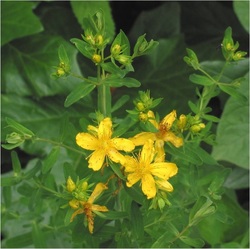
Mental Health Awareness week recently highlighted the often hidden reality that one in four of us experience some sort of mental health problem but resources for NHS treatment are limited.
We need to do much more to boost prevention and early intervention. Mental health care has now been declared a high priority and solutions are being sought. As well as improving NHS services, we should examine ways of preventing demand for NHS treatment in the first place.
There is increasing evidence, for instance, of the benefits of gardening and growing food to improve mental health for those suffering acute or persistent problems.
Other forms of treatment need to be considered. Using herbal medicine prescribed by Medical Herbalists, together with diet and lifestyle advice and the therapeutic benefits of a consultation, can be very effective in treating anxiety and mild to moderate depression, improving general health and vitality, and helping to limit the side effects of drug treatment. Such early intervention can stop such issues seriously deteriorating.
Many herbal medicines can be beneficial. St John’s Wort is a well-proven treatment for mild to moderate depression. Other important nerve tonic herbs include Skullcap, Vervain and Schisandra. Anxiolytic herbs such as Passionflower and Valerian are used to treat anxiety together with herbs that restore adrenal function such as Liquorice, Rhodiola, Withania and Siberian ginseng.
Using these herbal medicines with their gentle action and few side effects in combination with diet advice, and a listening ear could provide a turning point to improving mental health and a way of avoiding the need for NHS treatment.
We need to do much more to boost prevention and early intervention. Mental health care has now been declared a high priority and solutions are being sought. As well as improving NHS services, we should examine ways of preventing demand for NHS treatment in the first place.
There is increasing evidence, for instance, of the benefits of gardening and growing food to improve mental health for those suffering acute or persistent problems.
Other forms of treatment need to be considered. Using herbal medicine prescribed by Medical Herbalists, together with diet and lifestyle advice and the therapeutic benefits of a consultation, can be very effective in treating anxiety and mild to moderate depression, improving general health and vitality, and helping to limit the side effects of drug treatment. Such early intervention can stop such issues seriously deteriorating.
Many herbal medicines can be beneficial. St John’s Wort is a well-proven treatment for mild to moderate depression. Other important nerve tonic herbs include Skullcap, Vervain and Schisandra. Anxiolytic herbs such as Passionflower and Valerian are used to treat anxiety together with herbs that restore adrenal function such as Liquorice, Rhodiola, Withania and Siberian ginseng.
Using these herbal medicines with their gentle action and few side effects in combination with diet advice, and a listening ear could provide a turning point to improving mental health and a way of avoiding the need for NHS treatment.
 RSS Feed
RSS Feed
